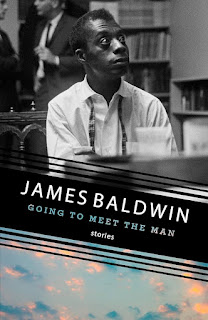 |
| I Am Not Your Negro. |
One of the many reasons why I find myself drawn to short-stories is that the really good ones tend to be intensely dramatic in their compactness but also thrive on ambiguity, thereby creating an opportunity for the reader to fill in the gaps. "The Man Child" by James Baldwin is shockingly tragic and fits this description because the characters are revealed without much elaboration, their motivations not entirely clear. Moreover, not much really happens in terms of "plot" until the unexpected ending that leaves plenty of unanswered questions. It is one of those huge WTF moments that seems to come out of leftfield, completely blindsiding the reader and forcing them reconsider everything that came before this pivotal moment. Baldwin has a few literary tricks up his sleeve and manages to cleverly lull the reader into a false sense of complacency before yanking the rug out from underneath. Similar to other memorable short-stories, there is a lot more nuance and intricate details that might not be fully apparent upon a first reading.
Many of Baldwin's fictional works attempt to articulate the harsh experiences of African Americans but in this story, all the characters are white. The story unfolds through the eyes of Eric, an eight-year-old residing on a large farm with his devoted parents. His father's closest companion is Jaime, the amiable local farmhand. Together, they forge deep connections, whether sipping drinks at the nearby tavern or simply enjoying each other's company on the farm. Jaime is seamlessly woven into their familial fabric, sharing meals and receiving care from Eric's mother, who diligently tends to his clothing. They go above and beyond, even marking Jaime's birthday with a heartfelt celebration at the farmhouse, complete with the wife baking him a cake. Yet, the idyllic scene is abruptly shattered in a moment of incomprehensible madness, plunging everything into inexplicable chaos.
Baldwin's artistic sensibilities seem to be encapsulated within an underlying religious subtext. Purposefully open to interpretation, one could view this story as a biblical parable (Cain and Abel), a philosophical exploration of evil or the divine condemnation of sin. He demonstrates his skill as a short-story writer, crafting a narrative that sneaks up on you with a shocking ending that isn't easily shaken off; it will linger in your thoughts and not be be easily forgotten.
No comments:
Post a Comment